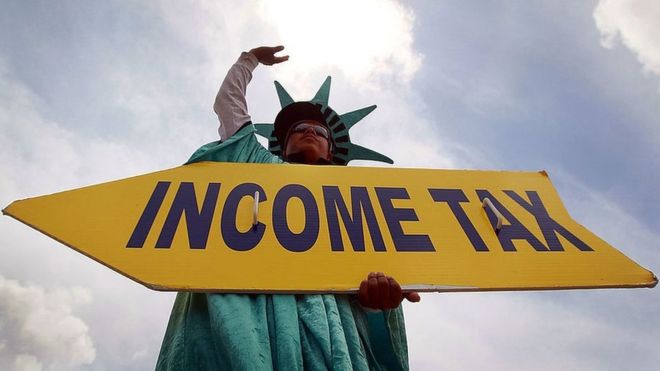Dr Moshe Vardi, a computer science professor at Rice University in Texas, believes that a basic income may be needed in the future as advances in automation and AI put human workers out of jobs.
In an interview with The Huffington Post, Dr Vardi said: “Our current economic system requires people to either have wealth or to work to make a living, with the assumption that the economy creates jobs for all those who need them.”
“If this assumption breaks down – and progress in automation is likely to break it down, I believe – then we need to rethink the very basic structure of our economic system.”
Category Archives: Finance
Robots: Destroying jobs, our economy, and possibly the world | Ars Technica
Vardi raised the concerning possibility that an over-reliance on automation and AI could have the same effect on our economy as the Roman dependence on slaves. “Can our economic system deal with labor participation rates below 25 percent? Below 50 percent?” he asked. The solution in ancient Rome, he pointed out, was bread and circuses or life as a legionary.
Source: Robots: Destroying jobs, our economy, and possibly the world | Ars Technica
Why expat Americans are giving up their passports – BBC News
The United States is one of only two countries in the world that has citizenship-based taxation (the other is Eritrea).
As a US citizen you must file a tax return, no matter where you live, and often pay US taxes on top of the tax you already pay in your country of residence – so-called double taxation.
Source: Why expat Americans are giving up their passports – BBC News
Switzerland will be the first country in the world to vote on having a national wage of £1,700 a month | Europe | News | The Independent
Switzerland is set to vote on a proposal that wants to pay everyone 2,500 Swiss francs (£1,700) a month regardless of whether people are working or not.If the plans go through, it will become the first country in the world to provide a basic unconditional monthly income, and they are already the first country to vote on the matter.
Why Are Corporations Hoarding Trillions? – The New York Times
Corporations, it seems, may have amassed at least a good chunk of that $1.9 trillion in mysterious savings because the stock market is rewarding them for it.
Which leaves one last question: Why? The answer, perhaps, is that both the executives and the investors in these industries believe that something big is coming, but — this is crucial — they’re not sure what it will be. Through the 20th century, as we shifted from a horse-and-sun-powered agrarian economy to an electricity-and-motor-powered industrial economy to a silicon-based information economy, it was clear that every company had to invest in the new thing that was coming. These were big, expensive investments in buildings and machinery and computer technology. Today, though, value is created far more through new ideas and new ways of interaction. Ideas appear and spread much more quickly, and their worth is much harder to estimate. (Indeed, the impossibility of valuing the Internet is essentially what created the 2000 stock bubble.)
Source: Why Are Corporations Hoarding Trillions? – The New York Times
Why Big Companies Keep Failing: The Stack Fallacy | TechCrunch
Stack fallacy is the mistaken belief that it is trivial to build the layer above yours.
Source: Why Big Companies Keep Failing: The Stack Fallacy | TechCrunch
Lead developer quits Bitcoin saying it ‘has failed’ | VentureBeat | Commerce | by Reuters
(Reuters, Jemima Kelly) – Bitcoin slid by 10 percent on Friday after one of its lead developers, Mike Hearn, said in a blogpost that he was ending his involvement with the cryptocurrency and selling all of his remaining holdings because it had “failed”.
Source: Lead developer quits Bitcoin saying it ‘has failed’ | VentureBeat | Commerce | by Reuters
Growth funds are dumping Apple stock on anticipated iPhone sales decline | VentureBeat | Mobile | by Reuters
Major U.S. growth mutual funds have been among the largest sellers of Apple shares over the past six months, fueling speculation that the company’s days of supercharged growth have come to an end.

